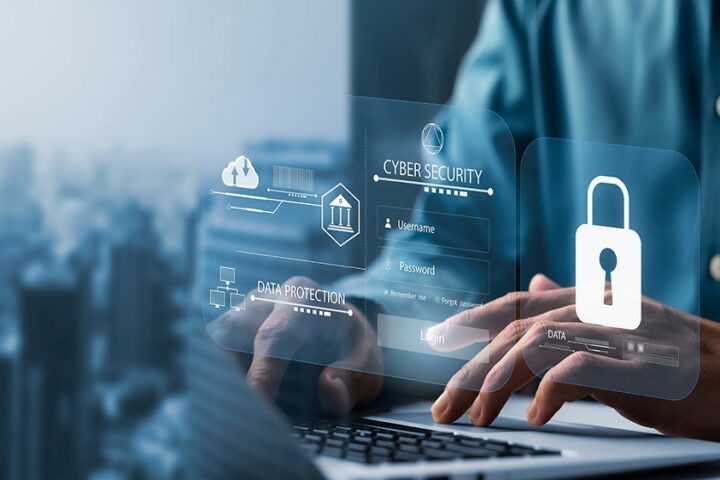Cybersecurity has developed from a technological issue to a basic business necessity in today’s increasingly digital environment. Every industry’s organizations must contend with complex dangers that are always changing and adapting. Events focused on cybersecurity become crucial gathering places for professionals looking to improve their defensive skills in this difficult environment. These specialist summits, expositions, and conferences provide distinct benefits that go well beyond conventional professional growth. Attending best cybersecurity events is an essential investment for progressive security professionals and the companies they safeguard, as this in-depth investigation reveals eight significant advantages.
1. Accessing Frontline Intelligence on Emerging Threats
The cybersecurity-focused events serve as critical intelligence gathering spaces because professionals share newly found threats with each other before such information becomes public. Security researchers along with threat analysts rely on these forums to exchange the most recent information regarding advanced persistent threats and zero-day vulnerabilities and new attack techniques. The lectures delivered at these events offer proprietary information about attacker strategies because they supply specialized technical data not available in mainstream sources. Security professionals may improve defenses against tactics that could eventually attack their own businesses by obtaining intelligence straight from individuals who evaluate breaches and track threat actor activities. In the never-ending battle against malevolent actors, this sophisticated warning system offers a substantial competitive edge.
2. Building a Trusted Professional Support Network
Collaboration is essential to the cybersecurity industry, and top events help people with similar problems communicate with one another. These get-togethers foster connections beyond organizational lines, establishing unofficial support systems that are crucial in times of security crisis. Having reliable connections to turn to in the event of a breach or complicated implementation might be the difference between a quick fix and extended vulnerability. In contrast to online networking, face-to-face contacts foster more trust by allowing open discussion about shared difficulties and experiences. Long after the event is over, these connections frequently result in continued information exchange concerning risks, fixes, and best practices. These professional relationships are an essential resilience component in a career where isolation may be harmful.
3. Discovering Practical Solutions Through Real-World Case Studies
While theory has its place, cybersecurity experts ultimately want tried-and-true, workable solutions to challenging issues. At prestigious events, companies that have effectively overcome major security difficulties present in-depth case studies. These accounts usually provide candid evaluations of the process’s successes, failures, and lessons learned. Unlike polished success tales in marketing materials, these presentations typically highlight blunders and challenges experienced during security incidents or implementation efforts. Speaking with people who have overseen significant breaches, intricate compliance programs, or creativedefense tactics firsthand offers practical blueprints that can be modified to fit the needs of your company. The industry as a whole improves its collective defensive capacities thanks to this transfer of hard-earned information.
4. Evaluating Security Technologies Through Immersive Demonstrations
It is necessary to comprehend the real capabilities of security products beyond their promotional promises in order to choose the right ones. Prominent cybersecurity events provide exceptional chances to observe live demonstrations of various security solutions in operation. Before making large expenditures, these practical experiences enable professionals to evaluate user interfaces, workflow integration, detecting capabilities, and overall efficacy. In-depth technical conversations regarding certain implementation scenarios pertinent to your environment are made possible by the fact that vendors usually bring their technical specialists rather than just sales people. Numerous events have special demonstration spaces where security systems are put to the test in real time against mock assaults, exposing how well they function under duress. The possibility of choosing solutions that actually solve the unique security needs of your company is significantly increased by this direct examination.
5. Enhancing Professional Credibility Through Specialized Knowledge
Without constant learning, competence in the realm of cybersecurity rapidly becomes obsolete. Premier events offer focused educational opportunities from reputable authority on developing technologies, techniques, and regulatory needs. Your professional reputation both inside your company and throughout the industry is increased by the particular information you acquire at these events. Workshops, training sessions, and certification opportunities are offered at many events, showcasing your dedication to professional growth. Attendance at recognized security events is becoming more and more valued by employers as a sign of commitment to staying up to date. Your ability to explain innovative ideas, cite knowledgeable speakers, and use novel techniques establishes you as a progressive security expert. When promoting security investments or policy reforms, this increased credibility translates into more clout.
6. Identifying Talent Acquisition and Career Advancement Opportunities
Opportunities for professional development and recruiting are naturally created by the concentration of knowledge at cybersecurity events. At these events, a lot of companies actively recruit, offering chances to learn more about new roles in informal settings without following traditional application procedures. These events give talent-seeking firms access to skilled applicants who show a dedication to professional growth by attending. Complementary services sometimes include career development tools such as mentoring programs, interview coaching, and resume checks. Speaking with professionals in aspirational positions also offers insight into career growth pathways and the skills necessary for advancement. These gatherings foster relationships that would not otherwise arise through traditional hiring channels, whether your goal is to grow your security team or further your own career.
7. Gaining Strategic Vision Through Executive-Level Perspectives
Without the right strategic direction, technical expertise by alone cannot guarantee the success of a security program. Keynote speakers and panel discussions with chief information security officers, government representatives, and board members who function at strategic levels are common at prestigious cybersecurity events. These lectures examine how to communicate risk to senior leadership, how security fits into larger corporate goals, and strategies for obtaining the right resources. Professionals are better able to go beyond tactical issues when they comprehend how security decisions impact company strategy. For security executives getting ready to make similar arguments, hearing firsthand from those who have successfully navigated boardroom debates regarding security investments offers priceless perspective. Security professionals may radically alter how security is seen inside their businesses by positioning their programs as business facilitators rather than cost centers thanks to this strategic vision.
8. Benchmarking Your Security Program Against Industry Standards
It becomes difficult to evaluate the maturity of your security program in the absence of external reference points. Prominent cybersecurity events offer many chances to evaluate your strategies against peer firms and industry standards. Maturity models, frameworks, and assessment techniques that aid in the objective evaluation of program efficacy are frequently included in sessions. Speaking with colleagues from related firms reveals typical resource allocations for security efforts as well as common obstacles. Anonymous polling during sessions is a common feature of events, offering instant comparative data on security procedures, breach experiences, and implementation difficulties. This benchmarking aids in determining your security program’s holes that need to be filled as well as its strengths to capitalize on. Prioritizing enhancements and defending required expenditures to achieve the right security levels for your risk profile are made easier when you are aware of your position in relation to similar firms.
Conclusion
Premier cyber security events company offer crucial platforms for the collective development of defensive skills in a time when cyber threats are constantly increasing in sophistication and severity. For security professionals dedicated to safeguarding their enterprises, the mix of tactical expertise, strategic vision, technology assessment, and professional networking that these events offer produces unmatched value. Convenience notwithstanding, digital learning cannot replace the immersive experience and interpersonal connections made possible by live events.




